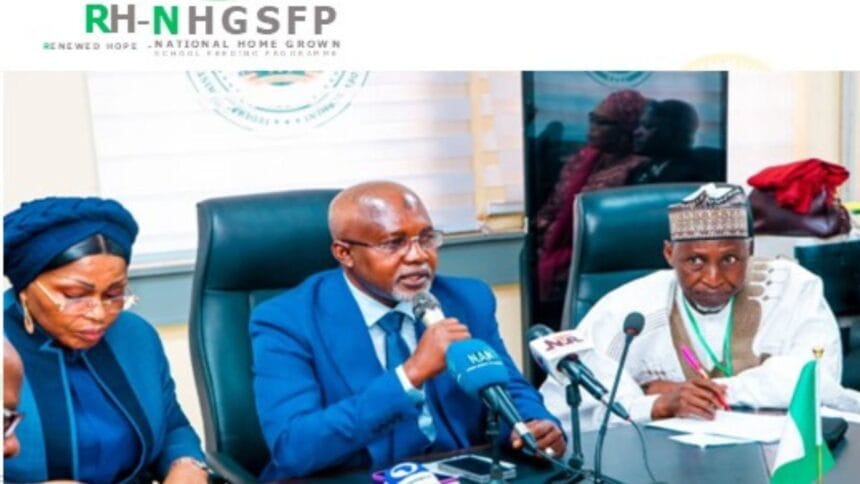… targets N1trn annually to scale up programme under Renewed Hope agenda
… engages stakeholders to strengthen implementation
Oredola Adeola
The Federal Government has considered the relaunch and scaling of the Renewed Hope National Home-Grown School Feeding Programme (RH-NHGSFP), with estimates suggesting that approximately N900 billion to N1 trillion will be required annually to provide nutritious meals for primary school pupils in grades 1 to 3, targeting three meals per week.
Atari Hope, Head of Communication and Public Relations, Ministry of State for Humanitarian Affairs and Poverty Reduction, disclosed this in a statement released on Thursday, April 24, 2025.
The stakeholders’ meeting, which was held on Wednesday at the Federal Secretariat in Abuja, was led by Dr. Tanko Yusuf Sununu, Minister of State for Humanitarian Affairs and Poverty Reduction.
During the meeting, Dr. Sununu stressed the importance of collaboration, noting that beyond federal government appropriations, additional funding sources are crucial for the successful implementation of the programme.
Responding to the funding requirements, Professor Badamasi Lawal, National Coordinator and CEO of the National Social Investment Programme, Associate, outlined potential funding sources.
These include presidential support, donations and grants from international donors and key stakeholders, as well as 5% of recovered repatriation funds.
“As stakeholders, your technical expertise, strategic insights, and financial support are invaluable.
“Through this engagement, we aim to identify collaborative pathways that will strengthen and sustain the programme’s goals in alignment with the Sustainable Development Goals—particularly in eradicating hunger, ensuring quality education, and alleviating poverty,” Dr. Badamasi stated.
He emphasized that the RH-NHGSFP is more than just an initiative, as it embodies the Renewed Hope Agenda of President Bola Tinubu, which seeks to address critical national challenges through inclusive, people-centered solutions.
“Through this programme, we will tackle malnutrition, improve school attendance, empower smallholder farmers, and stimulate local economies—one nutritious meal at a time,” he said.
Dr. Badamasi further highlighted that the enhanced model of the programme promises improved efficiency, transparency, inclusiveness, and measurable impact.
“We hope that it will not only serve as a national success story but also as a model for other countries seeking sustainable school feeding systems,” he added.
Dr. Princess Aderemi Adebowale, National Programme Manager, in her presentation, introduced the Enhanced Platform of the NHGSFP, marking the beginning of a renewed and invigorated journey towards an improved programme.




